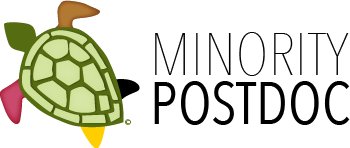Reporting on the #SciWri15 #WhatsaUCE session.
As knowledge grows, so does the awareness of how much scientists do not know. Geneticist Ting Wu's research at Harvard Medical School has such a quality. Her work to uncover the genetic causes of disease is unveiling ideas which are debated in the field. Even Wu and her lab's researchers are constantly questioning when they will turn out to be wrong.
At the 2015 ScienceWriters conference, Wu described her first meeting with the students who want to join her group. "In my lab, it's understood that anyone who wants to work on this project, I bring them into my office and we have a conversation," Wu said. "And I always tell them that the only way they can work on this project is if they are willing to wake up every morning ready to know that they are completely wrong."
Wu and her lab study parts of DNA called ultraconserved elements (UCEs) which have been unchanged for up to 500 million years, even predating the dinosaurs. Scientists think that something happened around the time that mammals, reptiles, and birds evolved into separate groups where the DNA sequences stopped changing. Wu's team is exploring how these highly conserved DNA sequences might play a role in genetic diseases, including cancer.
Wu hypothesizes that when two DNA chromosomes pair up during replication, the process compares the chromosomes to make sure that the UCEs are the same. If the DNA contains an error (such as a duplicated, flipped, or deleted section) then that cell could be targeted for programmed cell death (apoptosis) since it may be less viable.
Wu and have her colleagues have hypothesized that a glitch in this system could lead to cancer -- cells dividing without restraint or regulation. Wu explained that if this hypothesis is true, then a thereapeutic goal could be to find a way to reestablish the cell's UCE surveillance system so that the bad cells can not accumlate. "It's at this point that I have to tell you, I have no idea if this model is right," Wu said. "I also need to tell you it's not a very popular model in the field."
Wu appreciates that her students may have unique approaches to research, interpreting a question and trying to solve it in their own way. That is an aspect of diversity that people are not talking about as openly, explains Ruth McCole, a postdoctoral researcher in Wu's lab.
McCole's parents owned a pottery business; and, she believes her approach to scientific inquiry has been shaped by the way she was raised. "I often feel like people don't get what my intentions are or my goals," says McCole. "I do science the way artists do art. I do it for the process, for the uncovering and examination of concepts, for the journey that it takes me on. And, I don't have a destination in mind."
Wu's research group, in exploring a contentious area of genetics, also find themselves at the center of a discussion about how science itself is done. They ask themselves what keeps scientists motivated despite being told by others that they are wrong. McCole said more conversation between scientists would be beneficial to the ways in which people do research. "I think it's so weird that we go to these meetings and we talk science and we don't ever talk about our goals or our methodologies for getting from A to B."
As is often true in Wu's group, science is a dynamic process with changing predictions and aims. McCole explained that while their research is more exploratory, the fact is that in all science, "no one ever knows what's around the corner."
Wu said that this perspective is simply the nature of science. "I think scientists love the edges of things," says Wu. "Although people haven't come up and said we believe you, there's plenty of discussion around (our ideas). The ultraconserved elements field is very playful."
The composition of Wu's lab, which McCole described as more diverse than average in terms of nationality and gender, could possibly be the key to its success. Each member brings with them a unique perspective for a well-rounded team. McCole concludes that "if you increase diversity in a very specific way, say you want more people from different ethnic backgrounds you'll probably get more diversity of thought as a byproduct."
References or Relevant Literature
R.B. McCole, C.Y. Fonseka, A. Koren, & C.T. Wu (2014) Abnormal dosage of ultraconserved elements is highly disfavored in healthy cells but not cancer cells, PLoS Genetics 10(10):e1004646
The citation for this article is:
D. Shastri (2015) The Cutting Edge of Genetics Can Be a Lonely Place. DiverseScholar 6:11
Devi Shastri is currently a junior at Marquette University in Milwaukee, Wisconsin majoring in both biomedical sciences and journalism. She also works as a projects/investigative reporter, and formerly was the health and science reporter for the Marquette Wire. Shastri attended the ScienceWriters 2015 conference on a DiverseScholar NASW Diversity Travel Fellowship. We thank mentor Nidhi Subbaraman for help editing this article. Any opinions expressed in this article are solely those of the author.
Originally published 31-Dec-2015
DiverseScholar is now publishing original written works. Submit article ideas by contacting us at info@DiverseScholar.org. This work is licensed under a Creative Commons Attribution-Noncommercial-No Derivative Works 3.0 Unported License.
![]()
